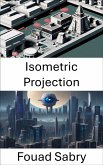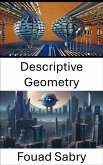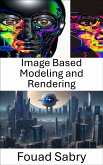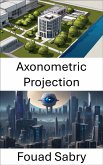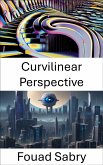What is Vanishing Point
A vanishing point is a point on the image plane of a perspective rendering where the two-dimensional perspective projections of mutually parallel lines in three-dimensional space appear to converge. When the set of parallel lines is perpendicular to a picture plane, the construction is known as one-point perspective, and their vanishing point corresponds to the oculus, or "eye point", from which the image should be viewed for correct perspective geometry. Traditional linear drawings use objects with one to three sets of parallels, defining one to three vanishing points.
How you will benefit
(I) Insights, and validations about the following topics:
Chapter 1: Vanishing point
Chapter 2: Perpendicular
Chapter 3: Stereographic projection
Chapter 4: 3D projection
Chapter 5: Oblique projection
Chapter 6: Curvilinear perspective
Chapter 7: Picture plane
Chapter 8: Cross section (geometry)
Chapter 9: Parallel projection
Chapter 10: Axonometry
(II) Answering the public top questions about vanishing point.
(III) Real world examples for the usage of vanishing point in many fields.
Who this book is for
Professionals, undergraduate and graduate students, enthusiasts, hobbyists, and those who want to go beyond basic knowledge or information for any kind of Vanishing Point.
A vanishing point is a point on the image plane of a perspective rendering where the two-dimensional perspective projections of mutually parallel lines in three-dimensional space appear to converge. When the set of parallel lines is perpendicular to a picture plane, the construction is known as one-point perspective, and their vanishing point corresponds to the oculus, or "eye point", from which the image should be viewed for correct perspective geometry. Traditional linear drawings use objects with one to three sets of parallels, defining one to three vanishing points.
How you will benefit
(I) Insights, and validations about the following topics:
Chapter 1: Vanishing point
Chapter 2: Perpendicular
Chapter 3: Stereographic projection
Chapter 4: 3D projection
Chapter 5: Oblique projection
Chapter 6: Curvilinear perspective
Chapter 7: Picture plane
Chapter 8: Cross section (geometry)
Chapter 9: Parallel projection
Chapter 10: Axonometry
(II) Answering the public top questions about vanishing point.
(III) Real world examples for the usage of vanishing point in many fields.
Who this book is for
Professionals, undergraduate and graduate students, enthusiasts, hobbyists, and those who want to go beyond basic knowledge or information for any kind of Vanishing Point.
Dieser Download kann aus rechtlichen Gründen nur mit Rechnungsadresse in A, B, BG, CY, CZ, D, DK, EW, E, FIN, F, GR, H, IRL, I, LT, L, LR, M, NL, PL, P, R, S, SLO, SK ausgeliefert werden.



